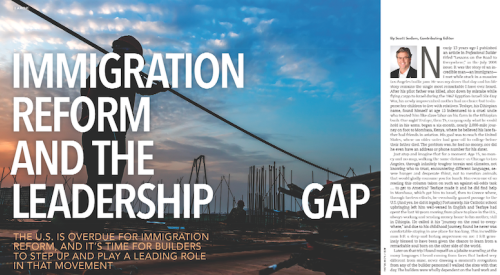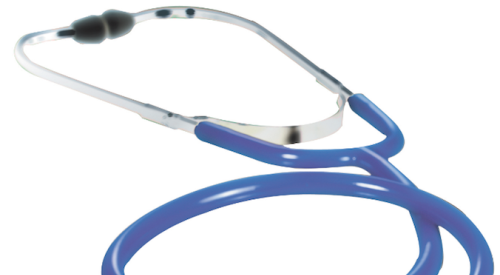| Contact Scott Sedam via e-mail at scott@truen.com
|
I'm writing this column on a flight from Detroit to Houston, my first time in the air in more than six weeks- my longest gap between airline flights in about 25 years. Even so, it would be just another flight except that things are different on this flight. Really different.
Not only do I have an appetite, but I can eat whatever I want. I don't have to pick apart the meal for what I can or cannot eat. I actually have had something to drink other than ice chips, and - now this is really something - I first had orange juice and then had tomato juice! Followed by coffee (!!) and water (!!!). And my legs haven't swollen from the decreased cabin pressure, and I can slip my shoes off and still get them back on!
Many of you at this point are scratching your head, but quite a few know where this is going. A little more than five weeks ago, I received a new/used kidney from a good friend (I know, that's an understatement), and as a result I have been physically reborn at the semi-ripe age of 50. I was on dialysis for 18 months before the transplant, with major diet and fluid-intake restrictions. I really didn't care much one way or the other about eating (a common effect), but I was always thirsty.
Before dialysis, I had fought off kidney failure through a strange combination of diet limitations, lots of drugs, a load of determination and a strong dose of good old-fashioned denial. It actually worked way beyond what my doctors told me it could, but things finally caught up to me, and I had to face the music.
End-stage renal disease, they call it. They could come up with a better name. It sounds so ominous, so final. But with the advances in dialysis and transplants, it's not so much an "end stage" these days.
Until just about a year ago, I had kept this situation among a small circle of friends, relatives and a few clients who, because of the work we were doing, had to understand what I was dealing with. It required a lot of patience and flexibility on their part.
All this came on top of a three-year series of eye problems that required 14 surgeries. "Stick a needle in your eye?" Been there, done that. Scalpels, scopes and a few dozen other medical tools in there, too. (The amazing thing is, after all of that, my vision is nearly perfect.) Just before last year's Builders' Show, I had a detached retina that required emergency surgery, and I could not fly or drive for weeks. I had to cancel a couple of presentations and many meetings at the show. Then the phone calls started. Close friends and associates let me know of rumors afoot that I was extremely ill, perhaps even dying. This is not a good rumor to have on the street for my small but growing firm. So at that point I felt I had little choice. To protect my people and our business, I had to "go public," kind of like Michael J. Fox.
So I sent a mass e-mail to our huge database saying that the company was fine, we were open for business, my associates were available to help, and I was fine, too, just occasionally "inconvenienced." I had a great fear that people would stop calling and the business we had worked so hard to build would just fade away.
The reaction to that e-mail was amazing. The business stayed busy all year. But what struck me most was from a personal standpoint. The outpouring of support I received from people in this industry all across the country was overwhelming. And from that day, and virtually every day for the past year, I would receive an e-mail or a phone call from someone asking what he or she could do to help, or just offering support, prayers and a few uplifting words. Now, I have always been a "glass two-thirds-full" kind of person. But pretty quickly I became a "glass 99% full" kind of guy. Support came from literally everywhere. Builders, suppliers, manufacturers, trades, people from associations, etc. etc. Our clients were absolutely wonderful, to a point that some of their gestures could never be repaid.
All told, in addition to a large contingent of family and longtime friends, nearly 50 people from the building industry offered to donate. The University of Michigan was stunned when I turned in the list. The people there simply could not fathom that all these "business associates" had come forward. They had never seen anything like it. And that's when it occurred to me just how generous and magnanimous this industry really is. For all the grief we take in the media, this is a truly remarkable collection of people. And I spent my first 15 years in business working with every industry but home building. I know the difference firsthand. Some of you are like the proverbial fish in water, having no awareness whatsoever that, indeed, water is what you are living in. And good water it is. But take it from one who has lived and worked outside and within those waters: This is a special place with special people.
There were many lessons from that, but perhaps the biggest was the power of sharing your problems and issues - something most of us, especially alpha-male types, have been trained not to do. Buck up, kid. Stiff upper lip. Don’t show weakness. But after feeling forced to share my situation, and feeling quite humbled to do so, I got stronger and stronger, feeding off the support, caring and energy of others.
With about 150,000 readers of this magazine out there, at least a few hundred of you are involved in major health crises as I write. You have my complete empathy. Everyone’s situation is unique, but I can tell you that sharing on a broader basis significantly helped me cope as well as recover quickly from major surgery. The people in this industry will not let you have it any other way.
When your life is given back to you, especially through a completely voluntary act by a friend, you struggle to think how you can repay. I have come up with a whole bunch of interesting (and clever!) small gestures that I am doling out to her over time. But the best way I can "pay it back" is to, as they say, "pay it forward." And all of you can help. Right now, today, nearly 100,000 people are waiting for a transplant organ. And on average, each day, 27 people die waiting for an organ that never came. Virtually none of them has to die. Plenty of organs would be available if only the families of the deceased supported the process.
"Living" organ donation is common now for kidneys (about 40%), and this approach is becoming more prevalent for livers (the liver is literally split in two). But still, the great majority of transplant organs and tissue comes from cadavers. You might think that because you signed a donor card or the back of your driver's license, you are all set. But it doesn't matter what you signed unless your family supports your decision. If they don't say yes, it will not happen. The net result is that only about one-third of eligible intended donors actually become donors.
So if this is important to you, if you want to make a difference, look at this Web site: www.unos.com. It has everything you could possibly need or want to know.
Can one person really make a difference? Sure. Besides this effort, I have prepared a couple of presentations on organ donation that I am offering to any group free of charge. (An outline will appear soon on our Web site, www.truen.com). But just imagine what 150,000 people could do simply by signing donor cards and covering the subject with their families. We might save hundreds or even thousands of lives! That is my goal and why I decided to write about this. It's nice to let everyone know I am fine and back to 100%. More like 500%, because I have not felt this good for 30 years. But if you can help me give that gift to some of those 100,000 people waiting, that will be the best thing of all.
I know the kindness, generosity and caring spirit of this industry and the willingness of its people to take action. I have experienced it firsthand. Let's extend those gifts to others. It's a great New Year's resolution.











